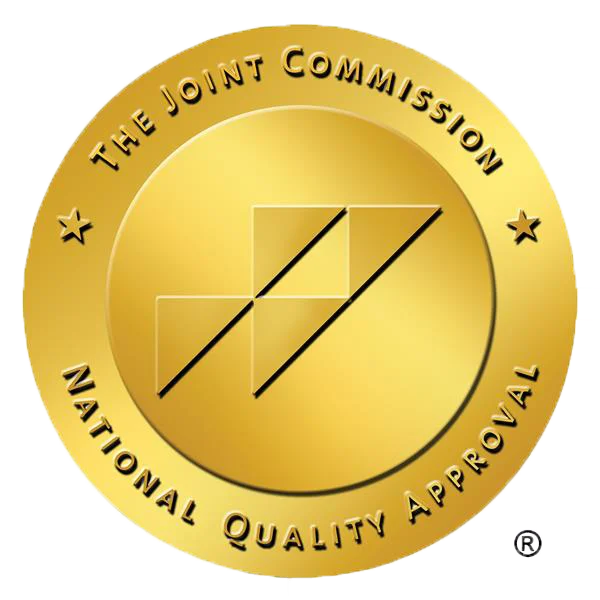Supportive recovery starts with compassionate, individualized care. At Cedar Grove Recovery in Louisville, KY, our therapy programs are designed to help you explore the roots of addiction, build resilience, and create lasting change—one step at a time.
Whether you're new to treatment or returning after relapse, therapy can be a powerful part of your recovery. And if you're covered by Medicaid or worried about affordability, you're in the right place. We’re proud to offer high-quality, evidence-based care that’s accessible to everyone.

How is addiction treated?
Addiction affects the whole person—mind, body, and spirit. That’s why treatment at Cedar Grove Recovery isn’t one-size-fits-all. Instead, we combine medical care, evidence-based therapy programs, and community support to help you heal in a way that fits your life.
Your treatment plan might include:
What is addiction-specific therapy?
Addiction-specific therapy is designed to treat substance use and the emotional pain that often fuels it. These programs help you:
- Understand your triggers and behaviors
- Heal from trauma or mental health challenges
- Strengthen your self-worth and decision-making
- Build healthy relationships and boundaries
At Cedar Grove Recovery, our therapists meet you where you are. We don’t just talk, we listen. We don’t judge, we support. And we never assume there’s one “right” way to heal.
You’ll work with therapists trained in trauma-informed care and co-occurring disorders, meaning they’re prepared to help with both addiction and mental health struggles like anxiety, depression, or PTSD. Our therapy programs also provide a sense of structure and predictability, which can be especially helpful for people navigating chaotic or stressful life circumstances.
Types of therapy used for drug and alcohol addiction
Individual therapy
This one-on-one support gives you a safe space to open up, gain clarity, and build a recovery plan that fits your goals. You’ll work closely with a licensed therapist to explore your history, challenges, and hopes for the future.
Group therapy
Group therapy lets you connect with peers who understand your experience and offers a supportive environment to share, learn, and grow. Sessions focus on communication, empathy, relapse prevention, and peer encouragement.
Family therapy
Trauma therapy
Our therapeutic approach: Evidence-based and person-centered
Cognitive-behavioral therapy (CBT)
Dialectical behavior therapy (DBT)
Motivational interviewing (MI)
SMART Recovery
Holistic and expressive therapies
Healing involves the whole person. That’s why we offer:
- Mindfulness and meditation
- Art and music therapy
- Life skills training
- Nutrition education
These services help you reconnect with yourself and build a healthier, more stable life.
Benefits of Therapy in Addiction Recovery
Therapy is more than just talking—it’s a process of transformation. For people recovering from drug or alcohol addiction, therapy offers both immediate relief and long-term tools for growth.
Here are some of the most significant benefits of engaging in therapy during recovery:
Emotional healing
Addiction often stems from unresolved pain, trauma, or mental health struggles. Therapy creates a safe space to explore these issues with support and without judgment.
Coping skill development
Through evidence-based practices like CBT or DBT, you’ll learn healthier ways to respond to stress, cravings, and emotional triggers—skills that make relapse less likely.
Improved relationships
Addiction can damage relationships with loved ones. Therapy helps you rebuild trust, learn effective communication, and set healthy boundaries.
Accountability and motivation
Meeting with a therapist gives you regular support, structure, and motivation to keep moving forward, even on the hard days.
Stronger self-esteem
As you begin to understand yourself and make positive changes, your confidence grows. Therapy helps you build a sense of identity beyond addiction.
At Cedar Grove Recovery, we believe therapy is essential to building the foundation for lasting recovery, especially for people who have been underserved or felt unseen in traditional care settings.
What are your treatment options?

FAQs about therapy programs
Therapy that meets you where you are
Therapy isn’t a luxury—it’s a lifeline. Especially if you’ve been turned away before or struggled to find care that understands your story, we want you to know: you are welcome here. Whether you're just beginning your journey or starting again, our therapy programs are here to guide and support you. Find supportive recovery with Southern Heart and Louisville values here at Cedar Grove Recovery. Reach out today at 502.317.8031 or online to learn more about starting therapy.
